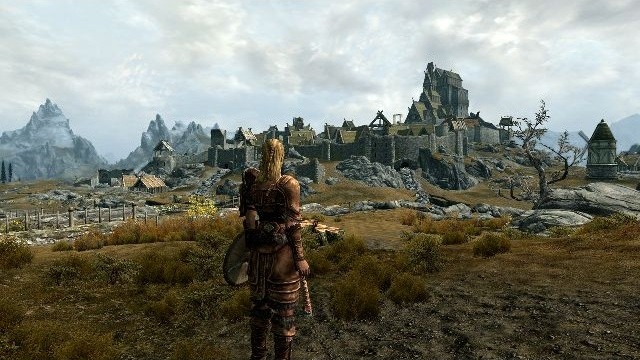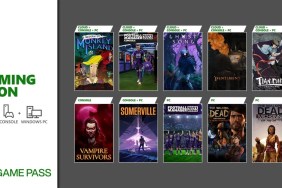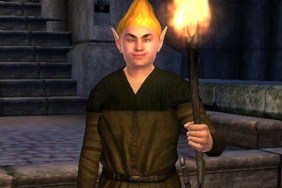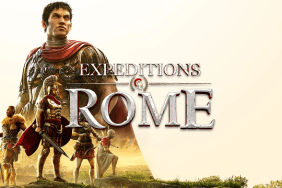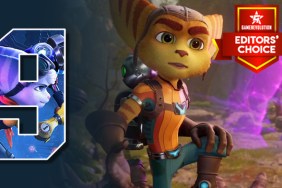Never laugh at a live dragon.
For earnest pleasure, I shall apply a deft hand to this reflection of my journeys through the Old Kingdom of Skyrim, the rustic homeland of the Nords and, lest the Divines jest in their everlasting guile, the root of humanity itself. I do this not to flaunt my powers of the written word nor to etch a lasting mark upon the world as mortalkind are wont to do when the Halls of the Dead beckons our name, but to reify the wistful restlessness stirring beneath this corner of the world with the ostensibly savage literacy of its people. Compared to the majesty of its mountains, the vastness of its plains, the half-remembered truths of its legends, I am merely a man clawing at the barefaced inspiration that envelops Skyrim with the elegance of the winds and the wisdom of the ancients.
Precariously after the accounts known throughout Tamriel as the Oblivion Crisis, Skyrim follows the thread of fate that pulls the Dovahkiin, or Dragonborn in the common tongue, to the town of Helgen along the outskirts of the land. Shackled for an unnamed crime and strewn through the muddy roads in a flimsy cart, the Dragonborn beholds the executions of two fellow prisoners before kneeling beneath the executioner's axe. Ulfric Stormcloak, with mouth bound by tightened cloth, faces the charge of assassinating the High King of Skyrim with the mere power of his voice. But as not to spoil the plot much further, let it simply be said that the Gods intervene, for this tale would otherwise be very short indeed.
Thus begins the perilous but valorous adventures of the Dovahkiin, whose race, gender, and appearance can be chosen freely, and the string of events whose significance shall spring forth in song and rumor by every bard throughout the kingdom until the coming of the end, as foretold by the Elder Scrolls themselves. Any telling of the story, however, no matter its length, dismisses in its judgment the mundane details for dramatic effect, the countless breaths between the lines left unmentioned. Yet Skyrim, and thus the Dovahkiin's journey through it, cannot be reduced to the space of mere paragraphs. Even this account is deficient despite my intentions.
For what shall be ignored? If we speak of the Dovahkiin's supernatural ability to absorb the souls of dragons and swiftly project the voice of the dragon tongue in magical Shouts, how can we discount the hero's numerous ventures into the catacombs strewn throughout Skyrim to learn each Shout's Word of Power? If we speak of the Dovahkiin's wealth, how can we discredit the hero's endless bandit killing, dungeon raiding, animal hunting, blacksmith forging, item enchanting, and flower picking for alchemic potions? Or the countless requests made by the haves and the have-nots? Or the thievery, left disregarded, in every city of Skyrim? Such is how exploration in this sun-choked land becomes the unspoken strength of the Dovahkiin.
But above all else is the sophistication of the combat and the refinement of the statistics, both undoubtedly influenced by the simplicity of Fable II. Oblivion's leveling system, most overly complex, has been abandoned for the clarity of health, stamina, and magicka—no more, no less. Levels are not earned strictly by earning trivial experience points but by upgrading any combination of skills a specific number of times, though if I may, a word of caution: Enemies will scale to the level of the hero, but not unfairly so, ensuring challenging combat and encouraging specific builds.
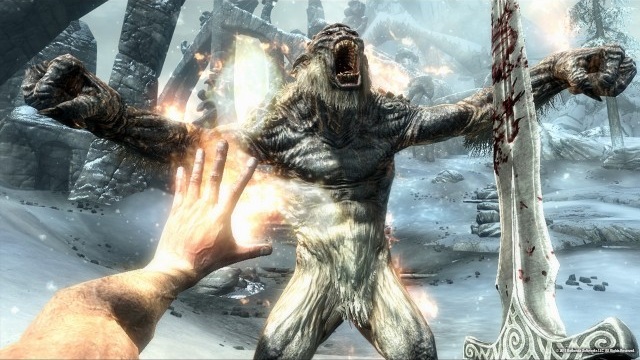
The Dovahkiin, blessed by the unerring fates, is also not bound by a level cap, lest every skill be mastered, which could be done in due time. Peering high at the heavens, the hero may glance at the sky and find each constellation a skill tree and each star a perk. It is an interface without peer, a vision to behold and the best of its kind. The universe becomes the very essence of the Dovahkiin's soul, a tapestry woven in the sea of infinite possibilities.
The flexibility of the combat comes from the ease with which the hero can wield two weapons, shields, or spells, whether that be a sword and shield, dual-wielded daggers, a two-handed greatsword, or dual-wielded spells. Well-timed blocks and strikes become deathblows and ripostes, while sneak-attacking enemies multiplies damage significantly. Switching between first-person and third-person provides further tactical precisoin by zooming in and out, and the favorites list allows for shortcuts to specific builds. However, console owners should not have been given only two build shortcuts and deserved a different shortcut system entirely.
All of this alone would have secured Skyrim as a momentous achievement, but then to combine it with majestic vistas, a fluid orchestral soundscape, a seamless time and weather system, the architectural detail of each major city, extensive literature, group factions, and dragons that can swoop down from anywhere without warning propels Skyrim into the hall of legends. Even with the occasional glitch and the linearity of most side quests, it cannot be denied.
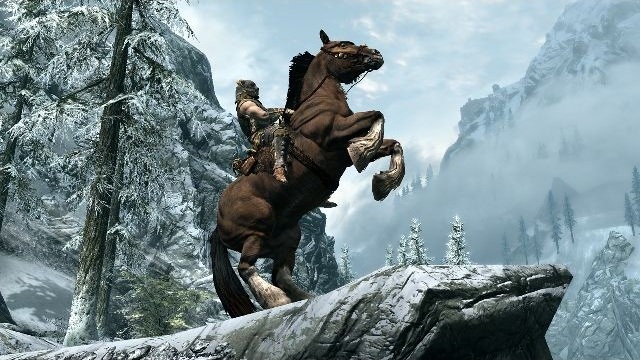
One calamitous stain, however, prevents Skyrim from reaching perfection: a lack of companion control. Why the companion wheel from Fallout: New Vegas has been unceremoniously removed is bewildering. This fact rears its ugly head each time a mercenary steps over a trap, dashes toward the enemy with unnecessary zeal while the hero is attempting to avoid detection, and waddles into the path of perfectly aligned arrows. Worse, the absence of companion side quests or backstory turns these companions into pack mules and nothing more. The repetitive dialogue heard every time the hero passes an NPC does not improve matters either, particularly from the guards who speak the same lines regardless of the city.
The Elder Scrolls V: Skyrim is a testament to the strength and importance of games that create living, breathing worlds, while affirming the value of long-term commitment over instant gratification. The absence of companion control, though a glaring flaw, ultimately does not spoil its purposeful, refined, and genre-defining design. Endlessly replayable and a phenomenal landmark in gaming, Skyrim deserves a place in every true gamer's collection.
Review based on X360 version. Copy provided by publisher.
-
Elegant and rich open-world game design
-
Dragons and Shouts
-
Accessible stats and crafting system
-
Deftly handles multiple combat systems
-
Dual-wielding weapons and spells
-
Constellation skill system
-
Majestic landscapes, orchestral soundscapes
-
Nearly endless value and content
-
Lack of companion control
-
NPCs can repeat dialogue too much
-
Quests can be too linear
-
Just shy of an 'A+'
